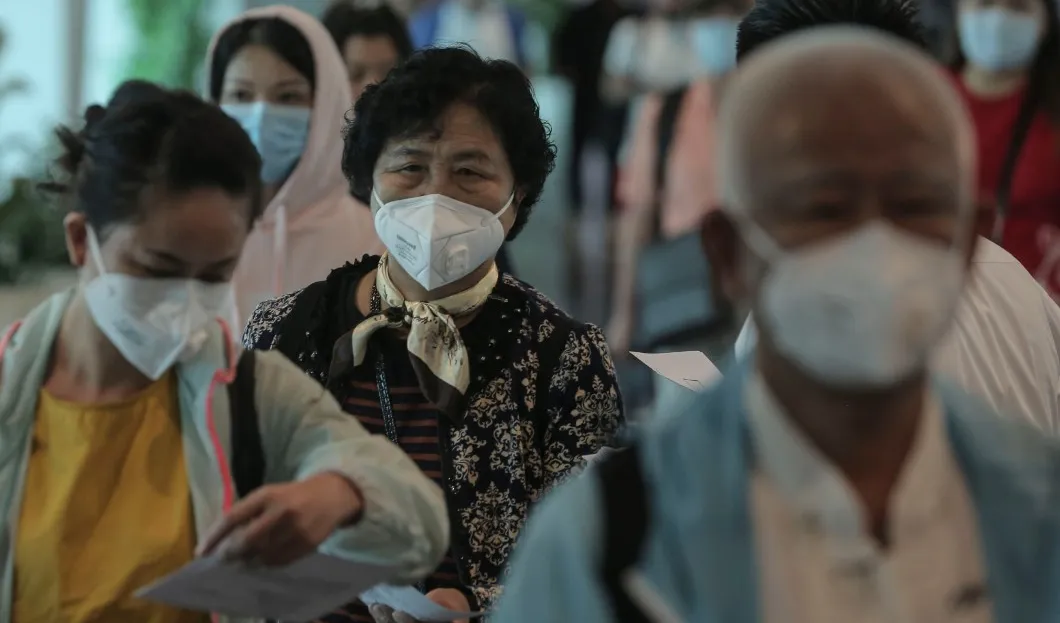
The coronavirus outbreak could significantly affect world tourism, starting with Asian countries that rely mostly on Chinese visitors, such as Japan, Thailand and Korea. However, there is also growing concern in France about the loss of this large market.
With more than 2 million visitors a year, Chinese tourism is an important market for France, especially since these Asian tourists are the ones who spend the most.
The number of Chinese visitors to France has increased in the last ten years, going from 715,000 in 2009 to over 2.2 million in 2018, according to Atout France, the organization responsible for promoting France as a tourism destination.
The figure has returned to normal since the 2015 terrorist attacks, when 2.2 million visitors were recorded, then 2 million in 2016, and 2.1 million in 2017.
Paris and its surroundings continue to be the most visited European destination by the Chinese. However, from January to November 2019, Chinese arrivals decreased by 8% compared to 2018, with just 892,000 hotel bookings, according to the National Institute of Statistics and Economic Studies (INSEE).
About 25% of Chinese visitors travel in groups, and 75% are individuals or small groups. They stay an average of 5.2 nights. Chinese tourism thus brings substantial revenues to French travel companies.
“If the Chinese represent 2.5% of the total tourists, they are even more important economically: with 4 billion euros in expenditure, they account for 7% of tourism receipts,” explains Jean-Pierre Mas, president of Entreprises du Voyage, an association of French agencies in the travel industry.
Just in Paris, Chinese visitors spent 265 million euros in 2018 on goods that are not consumed locally, such as handbags, clothing, perfumes or a simple souvenir, according to data from the Regional Chamber of Commerce.
This makes them the visitors that spend the most, ahead of the Americans (246 million euros), the Spanish (85 million) and the Japanese (78 million).
Their average expenditure (excluding transport) is 1,024 euros per stay, according to the Regional Tourism Committee (CRT), with purchases being the second most important part of expenses after accommodation.
The Chinese New Year holiday, from January 25 to February 8 is a crucial period for businesses: in 2018 and 2019, tax-free sales by Chinese tourists in that period accounted for over 10% of their total annual expenditure, recalls a spokesperson for the tax-free store Planet.
In 2019, Chinese tourism represented 32% of the value of tax-free goods in France, says Planet.
“We are in the low season at the moment, but if the situation remains – and there is a very high chance that it will last long – the economic impact will be significant, especially for the hotel and luxury sector,” says Jean-Pierre Mas.
According to Planet, during the Chinese New Year of 2019, “the number of tax exemptions for Chinese tourists in France decreased 5% compared to 2018, in particular, due to the yellow vests movement”. On this basis and in “the worst scenario for 2020, losses could be estimated at 10% in tax-free purchases in France; that is, 22 million euros.”
“This will inevitably result in a decline in Chinese tourists,” although “February is not such a crucial month,” says Christophe Decloux, general director of the CRT.
Decloux recalls that in 2003, during the SARS pandemic in Asia, “we experienced a decrease in arrivals – across all Asian markets and not just China – of 1.7 million tourists, which meant a loss of about 200 million euros in revenue”.










ICAO estimates airline revenue worldwide could drop by $4-$5 billion in the first quarter of 2020 because of the coronavirus outbreak flight cancellations.